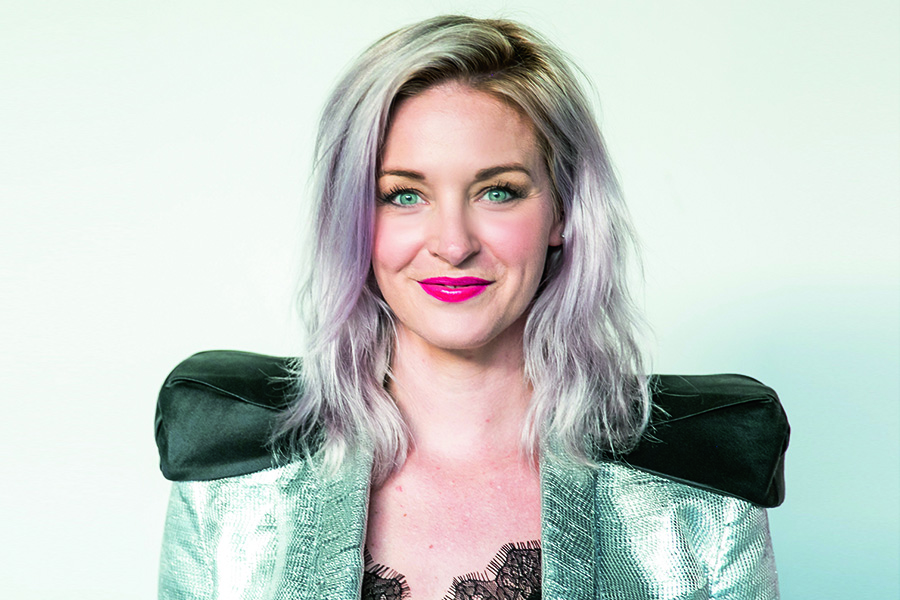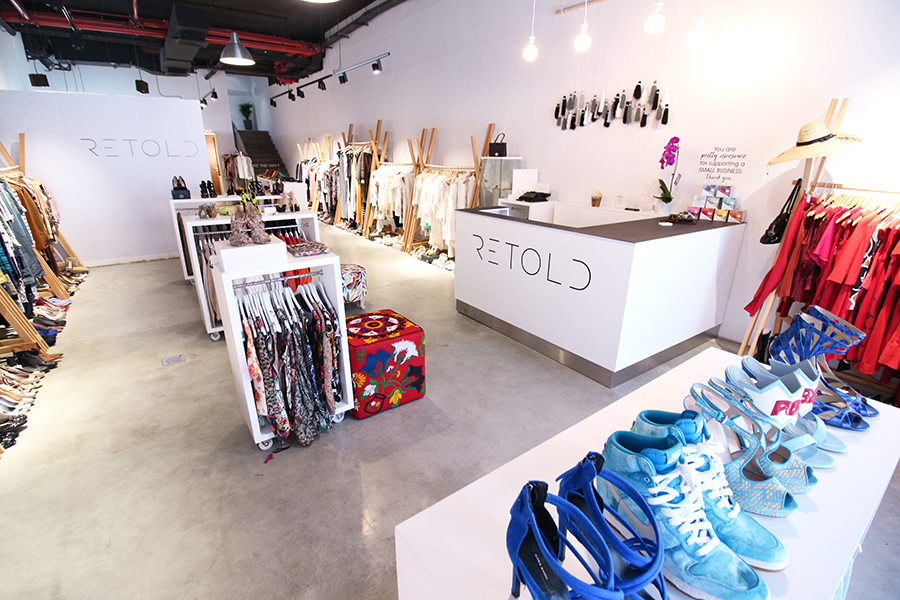
Sian Rowlands, founder & chief storyteller, RETOLD
UAE-based brand RETOLD explains the relevance of pre-loved fashion in a post-COVID world. The pre-owned segment of fashion is at an interesting crossroads; the model could be a welcome relief for shoppers. At the same time, consumers might be reticent to buy pre-owned goods amidst the on-going COVID-19 health pandemic.
“Our customers – almost 65% being repeat buyers – understand the pre-owned business model and haven’t stopped shopping with us since the COVID-19 outbreak,” shares RETOLD founder & chief storyteller, Sian Rowlands.
“Over the years, my single-minded focus has been to raise awareness about shopping mindfully and sustainably. As such, we have built a strong community that finds a lot of value in pre-loved fashion items,” she explains. “Currently, we have become stricter about addressing the health concerns around pre-owned garments and accessories. When we receive a pre-owned piece of garment, it is isolated for at least 48 hours. These pieces go on display after six-seven days of receipt. After being displayed, if a customer tries on a garment, it is isolated for another 24-48 hours. Moreover, almost 20-25% of our pieces tend to still have the price tags on, not even tried on too many times. In addition, the orders are packed 24 hours before they are picked up for delivery.”

RETOLD
Blindsided due to store closure
Even though pre-loved fashion hasn’t lost its relevance, RETOLD’s business is down 50% since the COVID-19 outbreak leading to store closures, compared to the same period last year.
“We really struggled due to the store closure, as only 2-5% of our sales happened digitally before COVID-19, which increased significantly during the lockdown,” admits Rowlands. “Our sales in April and May 2020 were only 8% and 10%, respectively, of what we recorded during the same period in 2019. And historically, April, May and June are great months for us. We were blindsided when the store closed; we weren’t really prepared. As soon as movement restrictions eased, we started focusing on building our online presence, with the right product images, descriptions and pricing in order to make our inventory visible online. We are now thinking of ways to partially recover the losses incurred during the store closure.”
Even during the lockdown in the UAE, RETOLD’s loyal audience still shopped with the brand online, through its Instagram page, but not enough to offset losses incurred on brick-and-mortar.
Since RETOLD reopened its boutique after a period of 75 days, the experience has been “pleasantly surprising.”
“We had people knocking on our doors even before we were ready to open,” recounts Rowlands. “We have a decently big, non-mall based, boutique that can otherwise accommodate 150 customers. Now with a 30% capacity, we are able to comfortably welcome our customers back while following the health and safety guidelines.”
Revenge spending is real
Towards mid-June, RETOLD hosted a two-day in-store sale. At a time when consumers are being cautious to spend on discretionary items, is ‘sale’ a good strategy to bring them back into the ‘shopping mode’?
“It’s true that people are facing financial uncertainty, but there is a section that is willing to spend with us after being under lockdown that helped them to cut down on some daily expenses,” Rowlands responds.
As such, RETOLD is witnessing what’s called ‘revenge spending’ after a period of lockdown. “But our motto isn’t to encourage people to buy more,” Rowlands points out. “RETOLD’s ethos is to help make people better and sustainable choices. Thus, pre-owned is a great channel to not only buy sustainably that’s better for the environment but also get better value for money. For instance, our resale prices are 25% of its original cost, so actually 75% less than the original price of the apparel or accessory in a full-price store.”
Finding value in pre-loved fashion
The pre-loved or second-hand apparel market is valued at about $28 billion currently. It is forecast to touch $64 billion within five years, indicates resale platform ThredUp’s annual report, done in partnership with data and analytics firm GlobalData.
“Think about it, during the lockdown period, a lot of people – including our suppliers – happened to clear their wardrobes. That meant we received a significant amount of new stock. Rather than these garments being discarded, it is better to find them a new closet. Our business model, irrespective of COVID-19, is three-pronged – selling pre-owned pieces at a certain price point, using the sale channel to make way for new stock and finally, if there is redundant stock, we donate it to charity organisations,” Rowlands elaborates. “Since we opened the RETOLD store in January 2018, we have ‘rehomed’ over 20,000 items.”
According to her, increasing the “resale” offer will be an integral part of improving the fashion industry as a whole.
Up in the air but will survive the storm
As RETOLD is negotiating the lease for its current location, Rowlands feels a possible change of location might be possible if the landlord and the tenant are unable to reach a workable solution. That might have several implications, one of which is a shift of focus to online.
“However, I think, this market is not ready to go fully digital for a pre-owned fashion brand like RETOLD, with a ‘no return’ policy. A lot of things are up in the air! We have to understand the knock-on effect of each decision and plan to survive the current storm accordingly. What I certainly know is that we will do everything to keep RETOLD afloat.”
For all the latest retail news from the Middle East, follow us on Twitter and LinkedIn, like us on Facebook and subscribe to our YouTube page.
You must be logged in to post a comment.